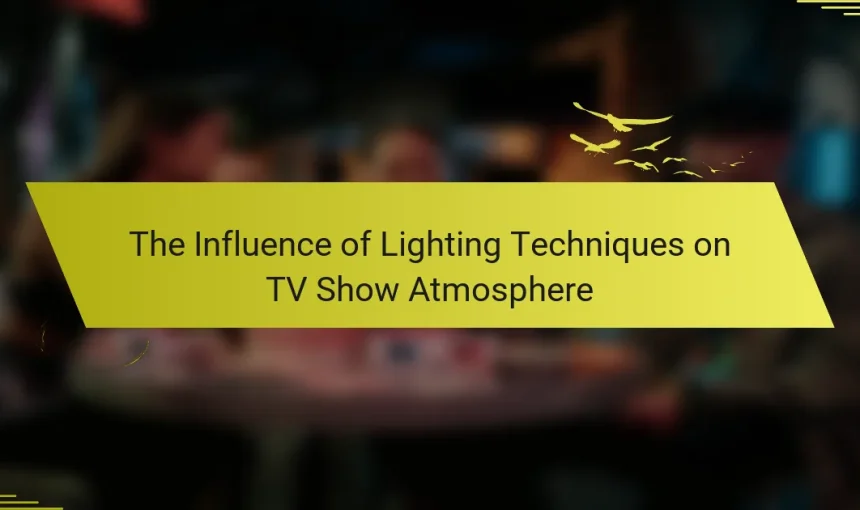Costume design is a critical component of character development in TV shows, serving to visually express a character’s personality, background, and evolution. The choices in clothing can convey social status, profession, and emotional states, enhancing storytelling and audience engagement. Effective costume design incorporates authenticity, character alignment, visual storytelling, and cultural relevance, ensuring that costumes accurately […]
Directorial styles are the distinct approaches and techniques that television directors use to express their creative vision, significantly impacting storytelling, pacing, and the overall aesthetic of a series. This article explores various directorial styles, including auteur, collaborative, and episodic direction, and their influence on viewer engagement and show success. Key factors such as a director’s […]
Visual effects (VFX) play a critical role in enhancing the production quality of television shows. By creating immersive environments and enabling the depiction of imaginative concepts, VFX significantly improve storytelling capabilities beyond what practical effects can achieve. High-quality visual effects not only elevate the visual appeal of a show but also correlate with higher audience […]
Audience feedback is a critical factor in TV show production decisions, influencing aspects such as content direction, character development, and narrative pacing. Producers analyze various data sources, including viewer ratings, social media reactions, and structured responses from surveys and focus groups, to understand audience preferences. Research indicates that 70% of viewers believe their opinions impact […]
Script quality is a fundamental element in TV show production that significantly impacts a show’s success. High-quality scripts engage audiences, enhance character development, and provide a coherent narrative structure. Effective dialogue within these scripts resonates with viewers, attracting talented actors and directors, which in turn elevates the overall production value. Research from the Writers Guild […]
Location scouting is a critical process that enhances the authenticity of TV shows by selecting real-world locations that accurately reflect the story’s setting. Authentic locations significantly contribute to the believability of narratives, fostering a deeper emotional connection with viewers. Research indicates that 70% of audiences prefer shows with realistic settings, which enhances their engagement and […]
Lighting techniques are critical elements that shape the atmosphere of television shows. These techniques, including high-key and low-key lighting, significantly influence viewer emotions and perceptions, creating moods ranging from cheerfulness to suspense. The article explores how color temperature affects intimacy and isolation, while the use of shadows adds depth and intrigue to narratives. Overall, effective […]
Music scores play a crucial role in enhancing viewer experience in television series by setting emotional tones and atmospheres for scenes. These scores can evoke a range of feelings, from suspense to joy, significantly increasing viewer engagement by up to 30%. Various types of music scores, including original compositions, licensed tracks, and theme songs, contribute […]
Cinematography techniques are essential methods utilized in film and television to enhance visual storytelling and production quality. Key techniques include composition, lighting, camera movement, and shot selection, each playing a critical role in shaping viewer engagement and emotional response. Research indicates that high-quality cinematography can significantly improve audience ratings and retention, with studies showing enhancements […]
Sound design elements in popular TV shows include dialogue, sound effects, music, and ambient sound, all of which contribute to storytelling and viewer engagement. Dialogue aids character development, while sound effects enhance realism and emotional impact. Music sets the tone for scenes, becoming iconic in series like “Stranger Things” and “Game of Thrones,” where specific […]









